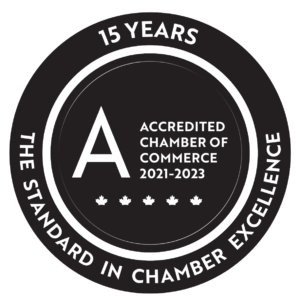Author: KMB Law
During the COVID-19 economic crisis, both commercial landlords and commercial tenants have suffered material impacts to their business and revenue streams. On April 16, 2020, Prime Minister Justin Trudeau introduced the Canadian Emergency Commercial Rent Assistance (the “CECRA”) program to assist landlords and tenants in dealing with the impact of the COVID-19 pandemic. The CECRA program is administered by the Canadian Mortgage and Housing Corporation (the “CMHC”). The program assists small business tenants by lowering their rental payments by 75%.
The following is a primer on the basics of understanding whether you as a landlord or tenant are eligible for the CECRA program and what is needed to apply.
Rent Responsibility
Of the 100% basket of gross rent, responsibility for payment is as follows:
- The Tenant is responsible for covering no more than 25%.
- The Landlord is responsible for no less than 25%.
- The federal and provincial levels of government would share the remaining 50%.
Landlord Eligibility Requirements
- The program applies to commercial landlords of real property located in Ontario which is occupied by an eligible small business tenant.
- This program applies to commercial properties only. In the event that the properties are mixed-use or have a residential component, they are still eligible, but must include at least a 30% commercial component and the program will only relate to the rents paid under the commercial tenancy.
- In the initial April 25 announcement, it was stated that the landlord would have to have a mortgage secured on the real estate which was occupied by the Tenant, however this has since changed to include unencumbered properties.
- The landlord must have entered into a rent reduction agreement for the period of April, May, and June 2020 that will reduce the tenant’s gross rent by 75%, and this agreement must include a stay on evictions or terminations for the period of April, May, and June.
- Landlords must have declared rental income on their tax return for tax years 2018 and/or 2019, however if the property is recently acquired or newly constructed, then landlords may still be eligible, provided that they meet the other program requirements.
- Landlords and tenants who are not at arm’s length (e.g. a holding company and an operating business who are both owned by the same controlling mind) are eligible for the CECRA program as long as there was a valid and enforceable lease agreement in place prior to April 1, 2020 on market terms.
Tenant Eligibility Requirements
- Both tenants and sub-tenants who meet the requirements are eligible.
- Tenants must be paying less than $50,000/month in gross rent per location.
- The $50,000 monthly gross rent cap applies per location and not collectively across all outlets of a franchise, but the tenant must have no more than $20 million in gross annual revenues, calculated on the companies 12 month financial period at the parent level.
- The tenant must have temporarily ceased operations (meaning they have no revenues) or have experienced a drop of at least 70% in pre-COVID-19 revenues. This is determined by comparing revenues in April, May or June to the same month in 2019, or to average revenues in January and February 2020.
- Revenues are based on ordinary activities using normal accounting methods and should exclude extraordinary items.
- Not-for-profits and charitable organizations are also considered eligible, provided that they too meet the requirements.
Expressly Excluded Tenants
- Tenants who are owned by individuals holding political office.
- Tenants that promote violence, incite hatred, or discriminate.
- Tenants that have entered their lender’s special accounts program or restructuring group prior to March 1, 2020.
Gross Rent
- Gross rent includes base rent, as well as regular monthly installments of operating costs, property taxes, maintenance, repairs, and utilities. As most leases are net leases, these are typically included.
Costs Expressly Excluded from Gross Rent
- Damages and indemnity payments.
- Payments arising due to tenant default/landlord enforcement.
- Payments arising due to landlord exercise of self-help remedies.
- Interest and penalties on unpaid amounts.
- fees payable for discrete items or special services.
- Reconciliation adjustments payments.
- Amounts required under the lease agreement to be paid separately by the tenant to third parties.
- Costs of non-monetary obligations (repairs and maintenance which are not covered by regular monthly installments).
- Insurance proceeds or proceeds from other rent subsidy programs.
- Sales taxes, including HST.
The Application Process
- The landlord applies on behalf of all eligible tenants. Tenants have no way of compelling a landlord to apply.
- The landlord must submit one application per property.
- The application is open for submission until August 31, 2020.
- The application by the landlord includes:
- Tenant’s Attestation – which includes an integrity declaration whereby the tenant confirms that they are eligible.
- Landlord’s Attestation – similar to the Tenant’s attestation, confirms that the landlord is eligible and will comply with the program.
- Rent Reduction Agreement – samples are provided by the government, however custom forms may be drafted insofar as they include provisions which comply with the intention of the program.
- this includes that from the commencement of the CECRA period, until the later of (1) 3 months after the date the application is made, or (2) the date on which the tenant is no longer receiving any rent reduction or credits under the agreement, the landlord is prohibited from pursuing an eviction of the tenant for any default arising from COVID-19.
- This agreement is conditional upon final approval of the application to CECRA.
- Landlord also must complete the Property Owner Forgivable Loan Agreement which sets out the terms and conditions of the loan.
Conclusion
At KMBLaw, our commercial real estate department has been advising on hundreds of CECRA applications. If you are a commercial landlord or tenant, we strongly advise you to look at the CECRA program and reach out to your advisors to determine if you are eligible. If you wish to discuss the CECRA program and whether or not it applies to you, please contact Oliver De Guerre at KMBLaw, 905-276-0419, [email protected].




